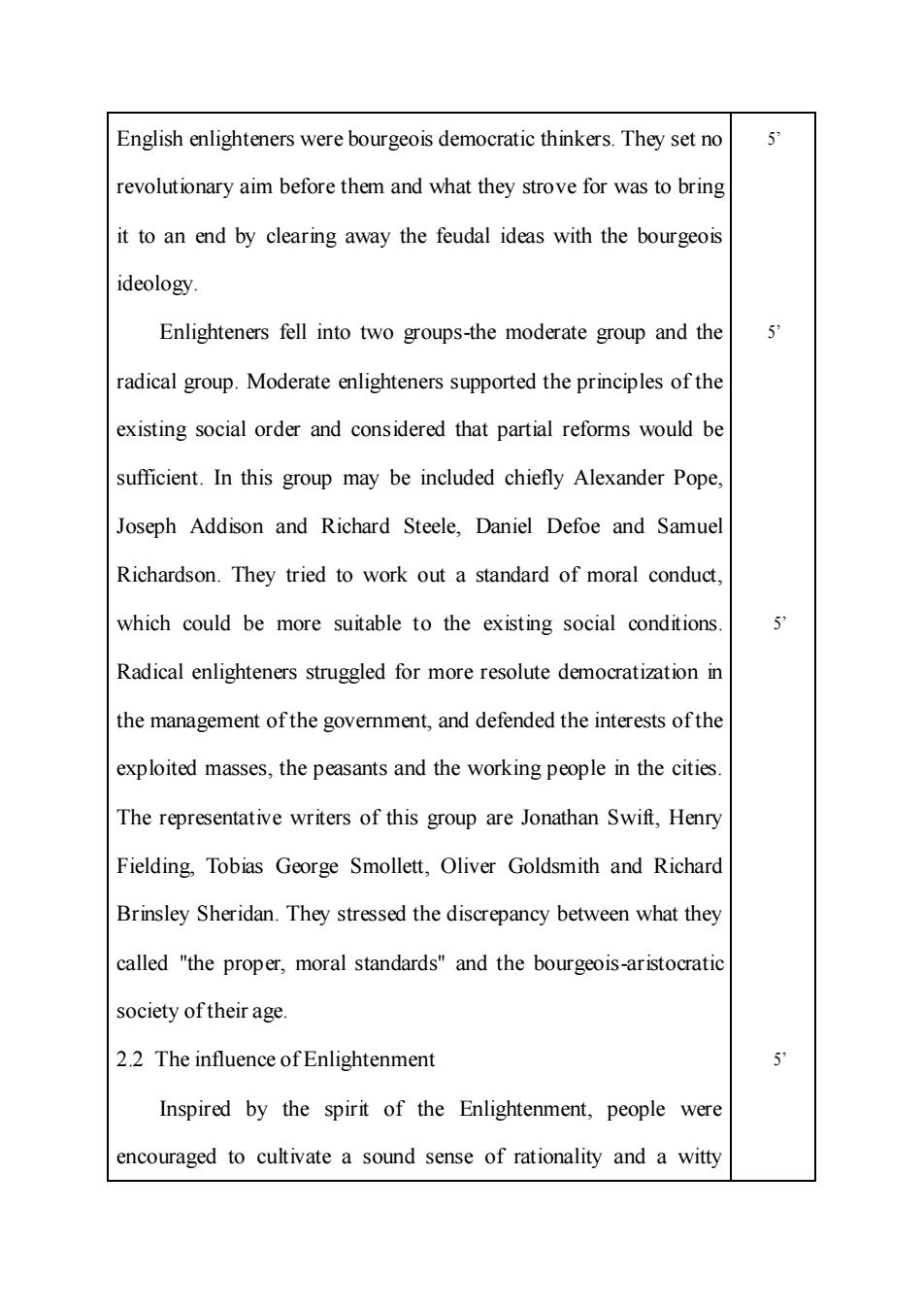正在加载图片...

English enlighteners were bourgeois democratic thinkers.They set no 5 revolutionary aim before them and what they strove for was to bring it to an end by clearing away the feudal ideas with the bourgeois ideology. Enlighteners fell into two groups-the moderate group and the 5 radical group.Moderate enlighteners supported the principles of the existing social order and considered that partial reforms would be sufficient.In this group may be included chiefly Alexander Pope. Joseph Addison and Richard Steele,Daniel Defoe and Samuel Richardson.They tried to work out a standard of moral conduct, which could be more suitable to the existing social conditions. 小 Radical enlighteners struggled for more resolute democratization in the management of the government,and defended the interests ofthe exploited masses,the peasants and the working people in the cities The representative writers of this group are Jonathan Swif,Henry Fielding,Tobias George Smollett,Oliver Goldsmith and Richard Brinsley Sheridan.They stressed the discrepancy between what they called "the proper,moral standards"and the bourgeois-aristocratic society of their age. 2.2 The influence of Enlightenment Inspired by the spirit of the Enlightenment,people were encouraged to cultivate a sound sense of rationality and a witty English enlighteners were bourgeois democratic thinkers. They set no revolutionary aim before them and what they strove for was to bring it to an end by clearing away the feudal ideas with the bourgeois ideology. Enlighteners fell into two groups-the moderate group and the radical group. Moderate enlighteners supported the principles of the existing social order and considered that partial reforms would be sufficient. In this group may be included chiefly Alexander Pope, Joseph Addison and Richard Steele, Daniel Defoe and Samuel Richardson. They tried to work out a standard of moral conduct, which could be more suitable to the existing social conditions. Radical enlighteners struggled for more resolute democratization in the management of the government, and defended the interests of the exploited masses, the peasants and the working people in the cities. The representative writers of this group are Jonathan Swift, Henry Fielding, Tobias George Smollett, Oliver Goldsmith and Richard Brinsley Sheridan. They stressed the discrepancy between what they called "the proper, moral standards" and the bourgeois-aristocratic society of their age. 2.2 The influence of Enlightenment Inspired by the spirit of the Enlightenment, people were encouraged to cultivate a sound sense of rationality and a witty 5’ 5’ 5’ 5’